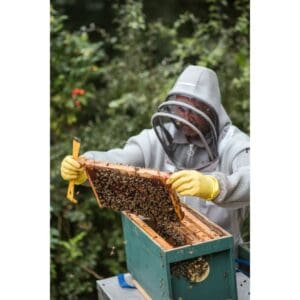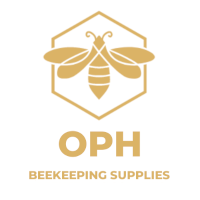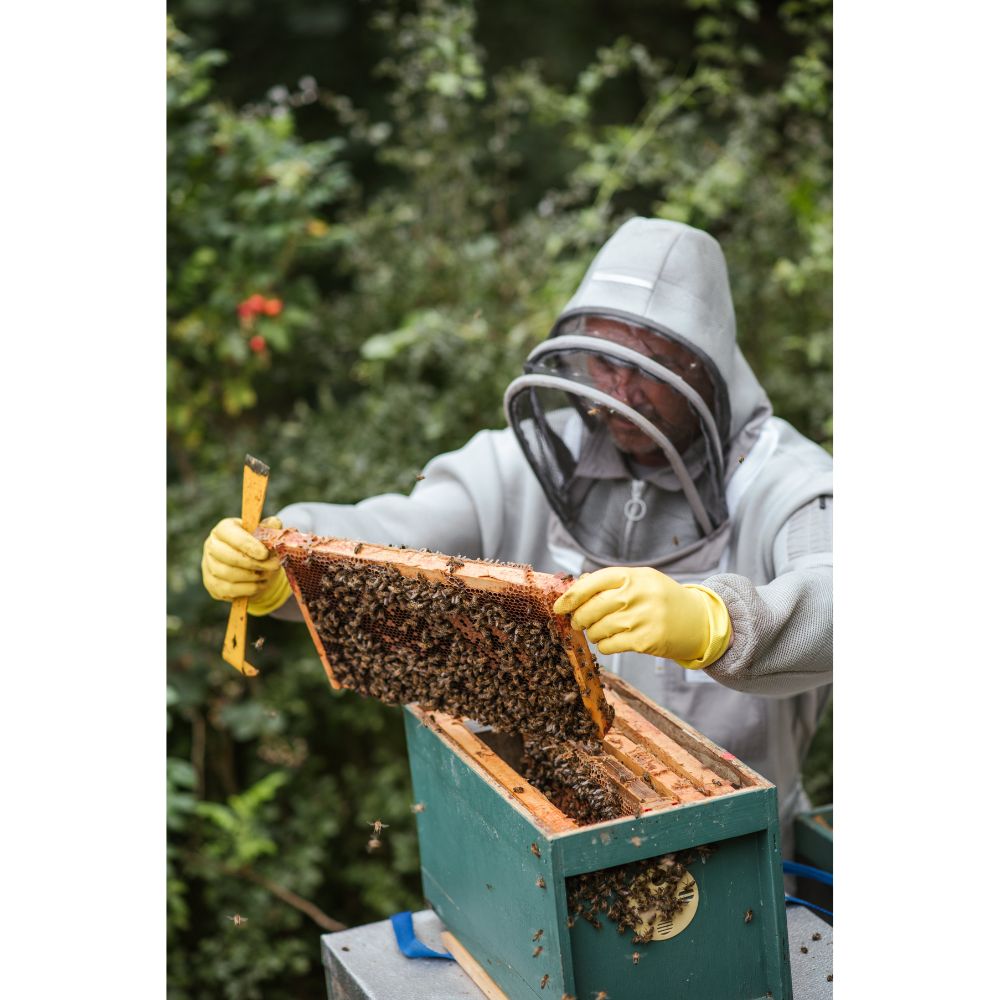
What is a beekeeper or apiarists? They are responsible for the care and maintenance of honey bee colonies in beehives and other beekeeping equipment. They provide a clean and sheltered environment for the bees, giving them the freedom to forage or swarm at will. The apiarist plays an essential role in preserving and protecting honey bees and important pollination services.
Beekeepers can gain benefits from honey bees, such as honey, beeswax, pollen, propolis, and royal jelly.[2] Additionally, they may sell queens and other bees to other farmers, or provide pollination services to fruit and vegetable growers. Beekeeping is pursued by some as a hobby, while others use it to generate income as a part-time activity or as a business venture. These factors influence the amount of colonies managed by the beekeeper.
Beekeeper is an essential tool for harvesting and selling honey, wax, pollen, royal jelly, and propolis. A professional beekeeper can expertly maintain maximum-strength colonies in areas with dense nectar sources, ensuring high-yield production of these valuable commodities. With Beekeeper, beekeepers can increase their revenues by retailing, self-brokering, or distributing commercially.
Beekeeper services provide reliable pollination for commercial crops. Moving hives of honey bees at night, beekeepers ensure that fruits and vegetables receive the necessary insect pollination, resulting in greater yields – in 2016, almond pollination accounted for 86% of U.S. pollination expenditure. Beekeepers are compensated with cash fees for maintaining healthy colonies and transporting them to crops such as almonds, apples, cherries, blueberries, melons, and squash.
Queen breeders are experts in raising queen bees with superior qualities to help hobby beekeepers, pollinators, and honey producers start new operations or expand existing ones. These specialty beekeepers take advantage of early springs in selected geographic regions and use Jenter kits to produce large numbers of queen bees quickly and efficiently. There are also queen rearing fames using the JZBZ system of raising queens.
Classification of Beekeepers
This classification of beekeeper encompasses hobbyists with an appreciation for ecology and natural science. With a modest investment and time, hobby beekeepers can produce small amounts of honey not always available through organic sources.
Beekeeping is an activity with multiple benefits – from the economic gain of selling honey, wax, and other products to being good for the environment. It requires an initial investment, but long-term profits can be expected in the second or third year. Local legislation should also be taken into consideration, as different cities have different laws regarding beehives.
Sideliners in the beekeeper classification operate 300 or fewer colonies, producing up to 20 metric tons of honey per year. This translates to tens of thousands of US dollars in annual income, making beekeeping a profitable sideline industry.
Commercial beekeepers are experts in managing thousands of bee colonies and producing millions of pounds of honey on an annual basis. The largest beekeeping operations control up to 80,000 colonies, representing 5% of beekeepers but over 60% of the world’s honey crop.


